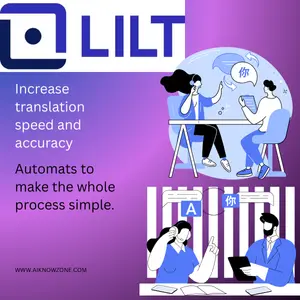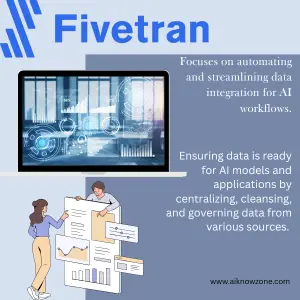
OpenAI Codex
A comprehensive review of OpenAI Codex, exploring its features, benefits, and real-world applications for developers and programmers.
Description
OpenAI Codex Review: Is This AI Coding Tool Right for You?
Ever felt like you’re drowning in code and wishing you had a super-smart assistant to help you out? Well, say hello to OpenAI Codex! 🎉 This AI system, crafted by OpenAI, is designed to translate natural language into code. Think of it as having a coding buddy who understands what you’re trying to do and helps you write the actual code. It’s like magic, but with a whole lot of algorithms behind the scenes. While the original models were deprecated in March 2023, the technology lives on, powering tools like GitHub Copilot. So, let’s dive into what makes OpenAI Codex so special and whether it’s the right tool for your coding needs.
The buzz around OpenAI Codex has been significant, and for good reason. It promised to revolutionize how developers approach coding tasks. From generating code snippets to understanding complex codebases, the potential seemed limitless. But how does it really stack up? Let’s explore its features and see how it could fit into your workflow. Whether you’re a seasoned developer or just starting out, understanding how to leverage AI in coding can give you a serious edge. This review will break down the core aspects of OpenAI Codex, giving you a clear picture of its capabilities and limitations. Plus, we’ll look at some real-world examples to show you exactly how it can be used to boost your productivity and streamline your development process. So, buckle up and let’s get coding!
Key Features and Benefits of OpenAI Codex
- Code Generation: OpenAI Codex excels at generating code from natural language prompts. Just describe what you want to do, and it will write the code for you.
- Code Explanation: Struggling to understand someone else’s code? OpenAI Codex can break it down and explain what each section does, making it easier to grasp complex logic.
- Code Refactoring: Need to clean up your code? OpenAI Codex can help you refactor it, making it more readable and efficient. This is a huge time-saver, especially when dealing with legacy code.
- Transpilation: Convert code from one programming language to another with ease. This is super handy when you need to migrate projects or work with different tech stacks.
How It Works (Simplified)
Using OpenAI Codex is pretty straightforward. You essentially provide a natural language prompt describing what you want the code to do. The AI then interprets your request and generates the corresponding code. You can then review, modify, and integrate the generated code into your project. The Codex CLI, for instance, acts as a coding agent that can read, modify, and run code on your local machine, helping you build features faster and squash bugs efficiently. Keep in mind that while the original Codex models are deprecated, these capabilities are now largely accessible through tools like GitHub Copilot, which is powered by the same underlying technology. This means you’re still getting the benefits of OpenAI Codex, just in a different package.
Real-World Use Cases for OpenAI Codex
- Automating Repetitive Tasks: I once had to write a script to automate a tedious data processing task. Instead of spending hours writing the code from scratch, I used OpenAI Codex (through GitHub Copilot) to generate the basic structure. It saved me a ton of time!
- Understanding Unfamiliar Code: I was working on a project with a codebase I didn’t write. Using OpenAI Codex to explain the functions and classes helped me quickly get up to speed.
- Quick Prototyping: When I need to quickly prototype a new feature, I use OpenAI Codex to generate the initial code. It’s a great way to get a head start and see if an idea is viable.
- Debugging: Ever stare at code for hours trying to find a bug? OpenAI Codex can help identify potential issues and suggest fixes, making debugging much less painful.
Pros of OpenAI Codex
- Significant time savings in coding tasks.
- Great for understanding and refactoring existing code.
- Helpful for quick prototyping and experimentation.
- Supports multiple programming languages, including Python, JavaScript, and more.
Cons of using OpenAI Codex
- The original OpenAI Codex models have been deprecated.
- Relies on natural language prompts, which may require some experimentation to get right.
- The quality of generated code can vary depending on the complexity of the task.
- Requires integration with other tools like GitHub Copilot to fully utilize its capabilities.
OpenAI Codex Pricing
While OpenAI Codex itself is no longer directly available as a standalone model, its capabilities are integrated into other OpenAI products and services, such as GitHub Copilot. Pricing for these services varies depending on the specific plan and usage. Be sure to check the latest pricing details on the OpenAI and GitHub websites to find the best option for your needs.
Conclusion
In conclusion, while the original OpenAI Codex models are no longer offered, the underlying technology lives on in powerful tools like GitHub Copilot. If you’re a developer looking to boost your productivity, streamline your workflow, and reduce the time spent on repetitive coding tasks, then exploring tools powered by OpenAI Codex is definitely worth it. It’s a fantastic way to leverage AI to become a more efficient and effective coder. Happy coding! 🚀





Reviews
There are no reviews yet.